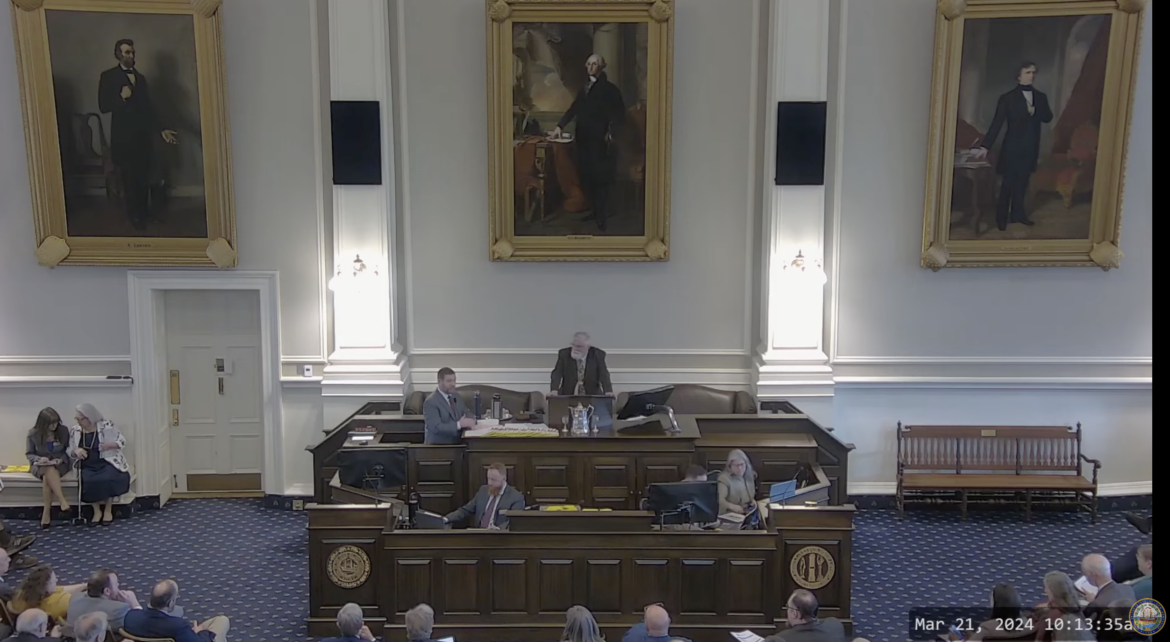By NANCY WEST, InDepthNH.org
CONCORD – The House vote Thursday allowing the terminally ill the right to determine when and how they die will get a do-over at next Thursday’s session after state Rep. Mike Ouellet, R-Colebrook, filed Friday for reconsideration after voting in favor of HB 1283.
Ouellet said the testimony was very emotional and he voted in favor of the bill during the last seconds allowed on Thursday. But on the long drive home to Colebrook he had a change of heart and wanted to change his vote.
“The testimony was very, very compassionate about trying to help people with their suffering and pain and I voted in favor of the bill,” Ouellet said.
But heading home, he was torn because the bill would conflict with his faith.
“I’ve been a practicing Catholic my whole life,” Ouellet said, and decided to ask for reconsideration.
He said the vote took place late in the day when he estimated about 30 members had already left.
House Bill 1283 would allow physicians to prescribe medication that would allow a terminally ill patient to end their own life.
The bill passed on a 179-176 bipartisan vote with supporters saying it was about time for New Hampshire to join its sister states in providing options to its citizens.
Since Ouellet voted on the prevailing side, he is allowed to ask that it come back to the floor. Ouellet said it is coming back to the House floor Thursday.
Rep. Steve Woodcock, D-Conway, co-sponsored the bill with Rep. Marjorie Smith, D-Durham. He said: “I guess it depends on motives. If he made an error, that’s a reasonable option. I don’t think that’s the case.”
Under the bill, a terminally ill person would be able to obtain a doctor’s prescription for a lethal dose the individual would be able to administer to himself or herself.
The person would have to be mentally competent, be terminally ill with no more than six months to live and voluntarily make the request to a physician to obtain the medication.
Two doctors would need to approve the request and the patient would need two mental health experts, and two witnesses to attest to his or her wishes.
Currently 10 states have medical aid in dying laws, including Maine and Vermont.
Oregon, the first state with a medical assist law, passed it 25 years ago. Opponents argued the bill may be narrow now, but it would be a slippery slope and eventually would reach wider and wider to the point where disabled and elderly people may be encouraged to participate in the program, and insurance companies encourage its use to save money, all eventually leading to euthanasia.
A coalition including the NH Hospital Association, Disability Rights Center NH and the Roman Catholic Diocese of Manchester have joined to oppose the bill.
Several physicians told the House Judiciary Committee during a public hearing on the bill that many people who are approved for medical aid in dying never use the medication, but are comforted to know it is there if their pain and suffering become unbearable.
A recent University of New Hampshire Survey indicates that 70 percent of the state’s citizens support medical assistance with dying.
Reporter Garry Rayno contributed to this report.





